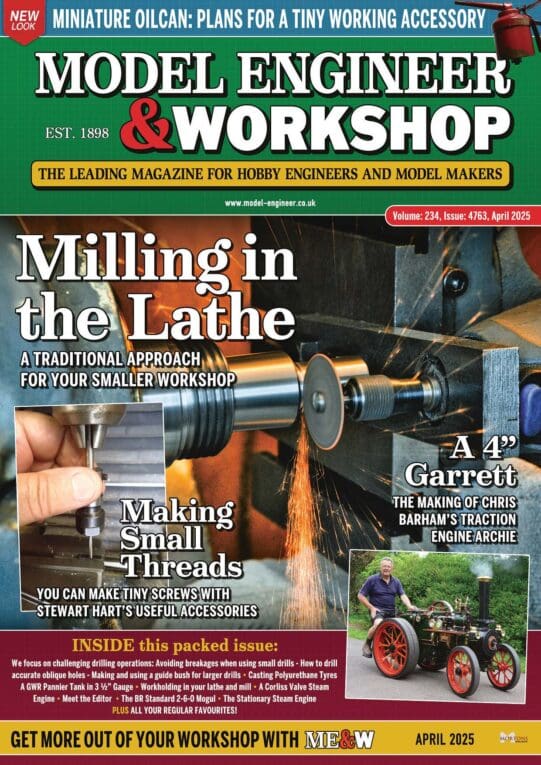Making cycle cotters in Stainless Steel
Making cycle cotters in Stainless Steel
- This topic has 7 replies, 7 voices, and was last updated 22 October 2023 at 16:20 by
 Andy_G.
Andy_G.
Viewing 8 posts - 1 through 8 (of 8 total)
Viewing 8 posts - 1 through 8 (of 8 total)
- Please log in to reply to this topic. Registering is free and easy using the links on the menu at the top of this page.
Latest Replies
Viewing 25 topics - 1 through 25 (of 25 total)
-
- Topic
- Voices
- Last Post
Viewing 25 topics - 1 through 25 (of 25 total)
Latest Issue
Newsletter Sign-up
Latest Replies
- Steam pressure using thermistor
- Contact Details for the family of Alan Barnes
- taper pins
- DIY Pendulum Timer – GPS-Synced Beat Analyser
- Myford saddle lock issue
- Use horizontal mill as saw for metal?
- Damp proofing concrete floors
- New member old lathe
- Reader Survey
- Easing out the bore of a 3-jaw, s/c chuck




